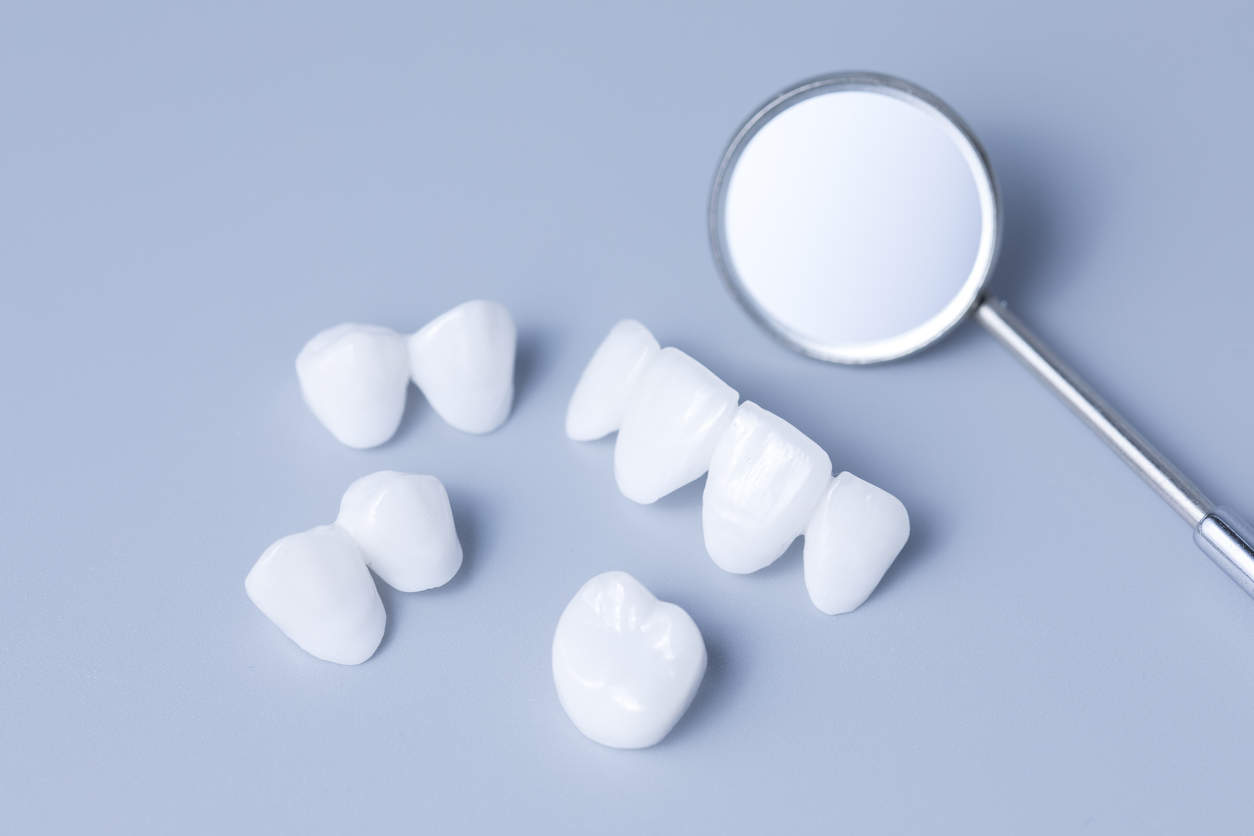Dental Veneers: 4 Types (Pros and Cons)

Do you want to improve your smile?
If so, you’re not alone. According to a recent survey, more than half of Americans feel insecure about their teeth. Luckily, you don’t have to spend the rest of your life flashing the camera with a closed-mouth smile.
One of the best ways to improve your smile is with dental veneers. But before you commit to dental veneers, it’s important to understand more about them.
Read on to learn about the four main types of dental veneers and their pros and cons.
Why Get Dental Veneers?
Dental veneers are a great way to improve your smile, and they’re a popular option for those with chipped, cracked, or misshapen teeth. They’re also an excellent option for those who have gaps between their teeth.
The veneers are thin covers that adhere to your teeth and give your teeth a straighter appearance. If someone has a chipped tooth, they may only get one veneer. However, to create an even, symmetrical smile, many people will get six veneers or more.
The top front eight teeth are the most common for veneer placement. Another great thing about veneers is that they can last up to a decade, and once they’re cemented to your teeth, you can eat and drink as you usually would.
In some instances, you may notice that the veneers feel a little rough immediately after they’re applied. However, the rough spots will wear down after several days with normal eating and brushing. If they don’t, your dentist can smooth out the rough spots.
Four Types of Veneers
Before scheduling an appointment with your dentist, you’ll want to consider the different types of veneers.
1. Porcelain Veneers
Porcelain veneers are often the top choice for patients who want to make small alterations to their teeth.
Pros of Porcelain Veneers
- They can last up to 15 years with proper care
- Mimic the natural light-reflecting properties of natural teeth
- Stain-resistant – your teeth will look white for years
- Durable and long-lasting
Cons of Porcelain Veneers
- Expensive
- Require a special polishing paste
- If they break, they can’t be repaired, and you’ll need to go to the dentist for a replacement
With their durability and stain-resistant properties, porcelain veneers are an excellent option for anyone looking to improve their smile. Keep in mind, though, that veneers aren’t covered by insurance in most cases, so you may need to save up some money for your porcelain veneers.
2. Composite Veneers
Composite veneers are made from composite resin material. There are two types of composite veneers: direct and indirect. Direct composite veneers are made from a composite resin material that’s applied directly to your teeth.
With indirect composite veneers, your teeth are prepped in the same way they would be for direct composite veneers. However, the custom veneers are made outside of the mouth – either in a laboratory or your dentist’s office.
While the indirect veneers are being made, you’ll receive a set of temporary veneers. Indirect veneers can handle more abrasion than direct veneers, but they tend to cost more.
Pros of Composite Veneers
- Require less tooth preparation compared to other veneers
- Typically half the cost of porcelain veneers
- Can look natural
- Choose from direct and indirect
Cons of Composite Veneers
- More likely to stain, break, and chip than porcelain veneers
- Have a lifespan of just five years
3. Lumineers
Lumineers are a brand of veneers that are manufactured by the DenMat Laboratory and only offered by some dentists. They are thinner and cheaper than porcelain veneers, and dentists can apply them more quickly.
Pros of Lumineers
- Long-lasting – if properly taken care of, Lumineers can last up to ten years
- No need to prep or trim your natural teeth
- More affordable than porcelain veneers
- Semi-permanent – after they’re applied, they can be removed with minimal damage to your teeth
Cons of Lumineers
- Don’t last as long as porcelain veneers
- Thinner and more translucent than porcelain veneers, so not as effective for discolored teeth
4. Removable Veneers
Removable veneers are a great option for those who aren’t quite ready for the involved process of getting permanent veneers. Also known as snap-on veneers, removable veneers can give you a fresh smile by hiding your original teeth.
As the name suggests, you can take them out whenever you desire, much like an athlete would take out a mouthguard. There are two types of removable veneers: pre-fabricated and custom-made. Pre-fabricated veneers are the most affordable option, but they’re made in a standard shape without considering an individual’s unique teeth or bite.
Custom-made veneers are made in a laboratory, and they are based on an impression of your teeth.
Pros of Removable Veneers
- Convenient – take them out whenever you wish
- Functional – eat food without the fear of your veneer detaching
- Non-invasive
- Instant results
- Fast treatment (the process can be completed in as few as two appointments)
Cons of Removable Veneers
- No visible gaps between the teeth, so someone may notice they’re prosthetic if they look closely
- They may appear bulky depending on the shape of your mouth
- Only last two to five years
How Much Do Veneers Cost?
Before you commit to veneers, it’s essential to understand how much they cost. As we mentioned, insurance usually doesn’t cover veneers, so you can expect to pay full price for your new smile. Here’s a cost breakdown:
- Porcelain Veneers: Generally cost $925 to $3000 per tooth, but cost also depends on the expertise of the dental professional, lab fees, and geographical location. These factors can bring the cost upwards of $35,000 – $40,000 for a full set of porcelain veneers.
- Composite Veneers: Generally cost $250 to $1500 per tooth
- Lumineers: Generally cost $800 to $2000 per tooth
- Removable Veneers: Generally cost $1000 to $3500 per arch, although some dentists may charge as low as $500 per arch
Are You Ready to Get Veneers?
As you can see, there are many great veneer options out there for those wanting to improve their smile. With veneers, you can have a new smile after just a few visits to the dentist!
If you’re thinking about getting dental veneers, contact Rinaldi Dental Arts today for a consultation.


